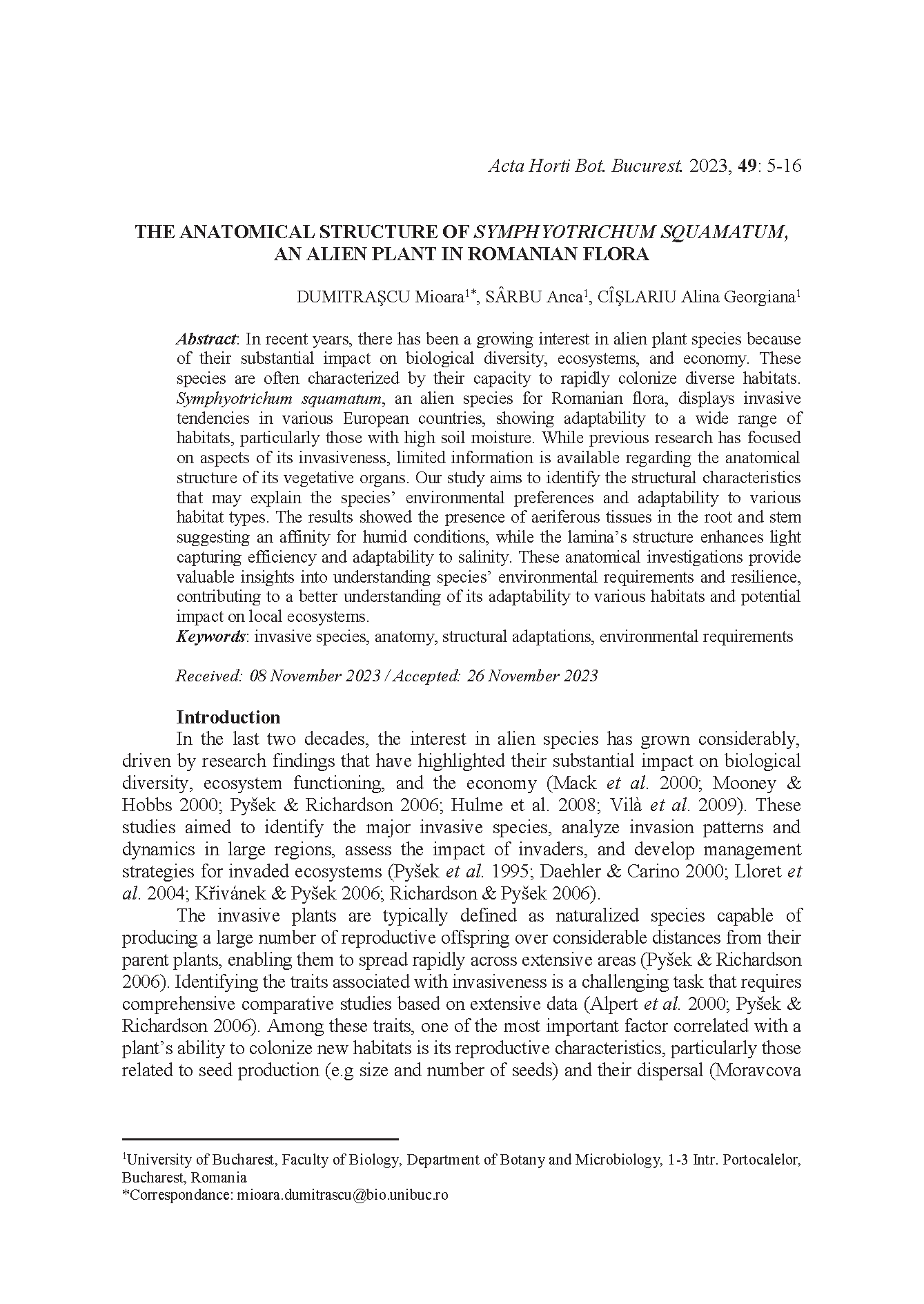THE ANATOMICAL STRUCTURE OF SYMPHYOTRICHUM SQUAMATUM, AN ALIEN PLANT IN ROMANIAN FLORA
DOI:
https://doi.org/10.62229/ahbb491Z1GrdCuvinte cheie:
invasive species, anatomy, structural adaptations, environmental requirementsRezumat
In recent years, there has been a growing interest in alien plant species because of their substantial impact on biological diversity, ecosystems, and economy. These species are often characterized by their capacity to rapidly colonize diverse habitats. Symphyotrichum squamatum, an alien species for Romanian flora, displays invasive tendencies in various European countries, showing adaptability to a wide range of habitats, particularly those with high soil moisture. While previous research has focused on aspects of its invasiveness, limited information is available regarding the anatomical structure of its vegetative organs. Our study aims to identify the structural characteristics that may explain the species’ environmental preferences and adaptability to various habitat types. The results showed the presence of aeriferous tissues in the root and stem suggesting an affinity for humid conditions, while the lamina’s structure enhances light capturing efficiency and adaptability to salinity. These anatomical investigations provide valuable insights into understanding species’ environmental requirements and resilience, contributing to a better understanding of its adaptability to various habitats and potential impact on local ecosystems.




